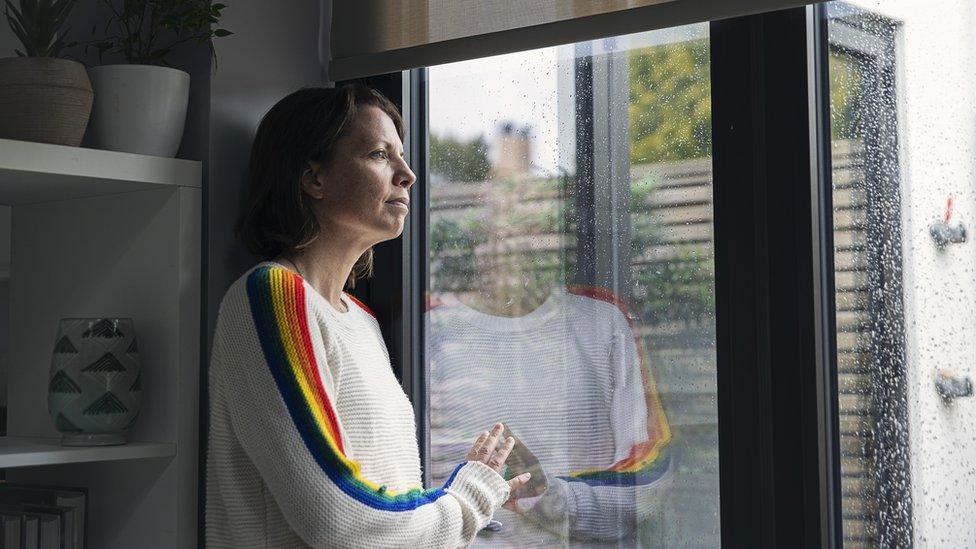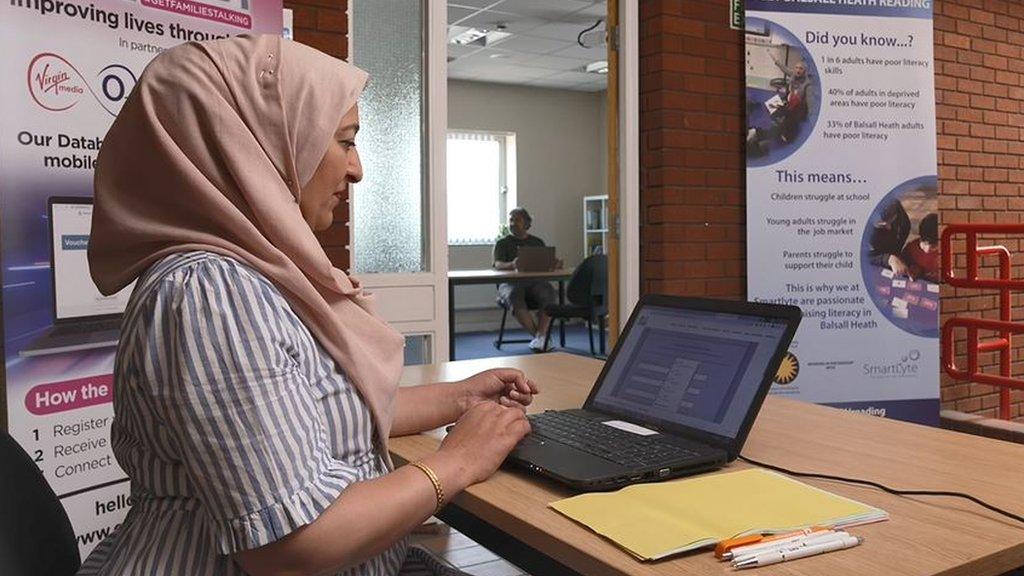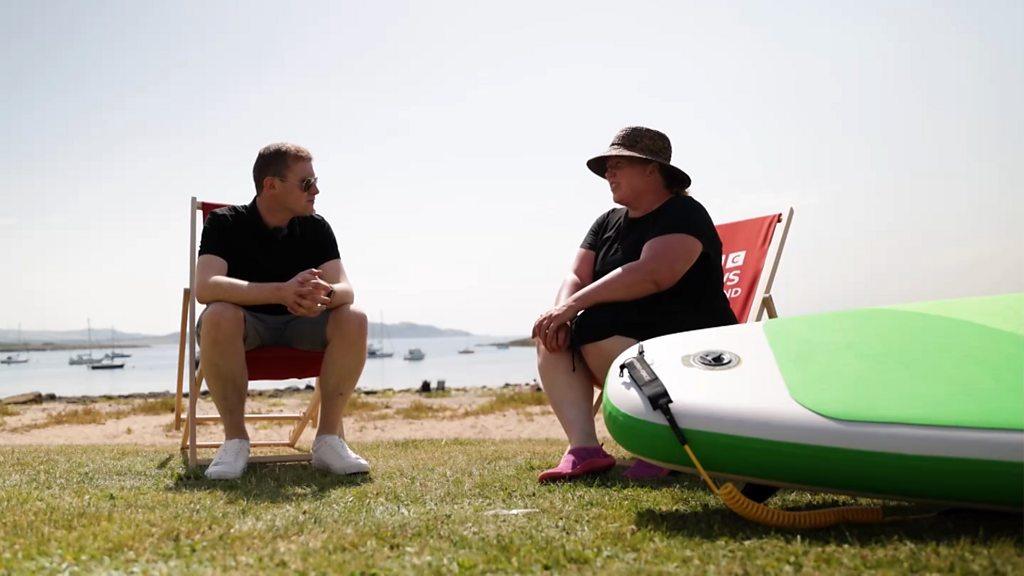MPs call for debt repayments holiday for benefits claimants
- Published
- comments

Deductions from benefit payments to recover debts should be paused to allow struggling households breathing space, MPs have said.
Payments are automatically taken from about 45% of universal credit claimants to recover overpayments and arrears.
These should be put on hold to help those struggling most as the cost of living soars, the Work and Pensions Committee wrote.
It added the repayments were pushing the most vulnerable into destitution.
The repayments, taken from more than 2 million claimants, are deducted from monthly benefit payments before they arrive in the recipient's account.
In its report, the committee says deductions often come without warning and are making life even harder for those trying to budget.
In February, 20% of deductions were made to recover an overpayment, sometimes made because of a government error.
The committee wants the government to put a pause collecting these debts, and only reintroduce them once the rate of inflation falls.
Prices are rising at their fastest pace in 40 years, with the rising cost of living affecting Britons in much of their necessary spending, from grocery shopping to fuel and energy bills.


When it comes to making sure we can afford daily essentials like food and utility bills, the mantra is always to budget carefully. Know what you have coming in, what you'll need to pay out, and cut your cloth accordingly. But for the millions having deductions made from their universal credit payments it feels like they have been tripped-up before they've even begun.
Some of the deductions are to return overpayments they received, and for others it's for historic debts like old council tax bills that they didn't even know they had, which only flag-up on the system when signing on for Universal Credit.
While this committee were attempting to address a whole swathe of issues around the cost of living, there was one problem that just kept being referenced. Evidence from so many witnesses, charities and government bodies kept circling back to the fact the playing field isn't level for everyone on universal credit.
And it's often the most vulnerable - those with previous debt and credit problems - who now have the least money hitting their accounts each month, at a time when they need it the most.

Labour's Sir Stephen Timms, who chairs the committee, said: "Inflation is at a 40-year high, with spiralling energy, food and fuel prices adding up to a cost-of-living crisis not seen for a generation and a bleak outlook for many families.
"Deductions by DWP [Department of Work and Pensions] from benefits are contributing to the hardship and the government should give those struggling some much-needed breathing space by following its own advice to other creditors and pausing repayments until the threat of inflation recedes."
The Department of Work and Pensions said it had already restricted the total amount of deductions that can be taken, and doubled the time people are given to pay money back.
The committee's report in to the cost of living calls for deductions to be gradually restored when inflation reduces - it is currently at 9.4% - or if benefits are increased to accurately reflect the cost of living.
The government said: "As part of our support package, we've frozen energy deductions on Universal Credit, meaning any new request from energy suppliers for bills to be paid directly from benefits, or for an existing payment to rise, is denied unless the claimant also requests it."
In a separate report, the Institute of Economic Affairs said that the next prime minister should cut red tape for housing, childcare and energy to help counter these spiralling costs for households.
Related topics
- Published26 July 2022

- Attribution
- Published26 July 2022

- Published24 July 2022
